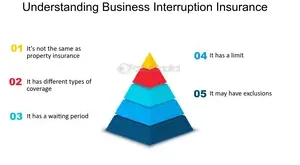As people live longer, the likelihood of requiring long-term care increases. Long-term care insurance is a vital component of financial planning for many, helping to cover the costs associated with extended healthcare services not typically covered by traditional health insurance or Medicare. This guide explores the importance of long-term care insurance, the types of coverage available, and tips for selecting the right policy.
Understanding Long-Term Care Insurance
What is Long-Term Care Insurance?
Long-term care insurance (LTCI) is designed to cover the costs of services that assist individuals with daily living activities such as bathing, dressing, eating, and mobility. These services can be provided in various settings, including home care, assisted living facilities, and nursing homes.
Key Long-Term Care Insurance Terms
- Premium: The amount you pay monthly or annually to maintain your long-term care insurance policy.
- Benefit Period: The length of time the policy will pay for long-term care services, typically ranging from two years to lifetime coverage.
- Daily Benefit: The maximum amount the policy will pay per day for long-term care services.
- Elimination Period: The waiting period before the insurance begins to pay for covered services, often ranging from 30 to 90 days.
- Inflation Protection: An optional feature that increases your benefit amount over time to keep up with the rising cost of care.
Types of Long-Term Care Insurance Policies
Traditional Long-Term Care Insurance
Traditional LTCI policies provide a specified amount of coverage for long-term care services. They often include:
- Home Care: Services provided in your own home, such as skilled nursing, therapy, and personal care.
- Assisted Living: Residential facilities that offer housing, personal care, and medical services.
- Nursing Home Care: Facilities that provide 24-hour medical care and assistance with daily living activities.
Hybrid Life and Long-Term Care Insurance
Hybrid policies combine long-term care coverage with life insurance or an annuity. These policies offer:
- Death Benefit: If you don’t use the long-term care benefits, a death benefit is paid to your beneficiaries.
- Flexibility: Provides access to funds for long-term care while still offering life insurance benefits.
- Fixed Premiums: Premiums are typically fixed and may be paid over a set period or as a lump sum.
Benefits of Long-Term Care Insurance
Financial Protection
Long-term care can be incredibly expensive, and costs are only expected to rise. LTCI helps protect your savings and assets from being depleted by covering the high costs of extended care services.
Choice of Care
Having LTCI gives you more options for care, allowing you to choose the type of care and setting that best suits your needs. This flexibility ensures you receive quality care without relying solely on family members.
Peace of Mind
Knowing you have a plan in place for future care needs provides peace of mind for you and your family. It alleviates the financial and emotional burden on loved ones, allowing them to focus on providing support rather than worrying about costs.
Preservation of Independence
LTCI enables you to maintain your independence by affording you access to professional care services. This support helps you stay in your home longer or choose a suitable care facility.
Choosing the Right Long-Term Care Insurance Policy
Assess Your Needs
Consider factors such as your age, health, family history, and financial situation. Assess whether you’re likely to need long-term care and how much coverage you might require.
Compare Policies and Providers
Research various LTCI providers and compare their policies. Look at coverage options, benefit amounts, elimination periods, and premiums. Ensure the policy offers the features most important to you, such as home care coverage or inflation protection.
Evaluate Financial Strength and Reputation
Choose an insurance provider with strong financial stability and a good reputation. Check ratings from agencies like A.M. Best, Moody’s, and Standard & Poor’s to ensure the insurer can meet its long-term obligations.
Understand Policy Details
Carefully read the policy details to understand what is covered, exclusions, and any conditions or limitations. Pay attention to the benefit triggers, which are the conditions that must be met for you to start receiving benefits.
Consider Inflation Protection
Inflation protection is crucial to ensure your benefits keep pace with rising long-term care costs. Choose a policy that offers an inflation protection option, either through automatic increases or the ability to purchase additional coverage in the future.
Common Long-Term Care Insurance Myths
Myth 1: Only the Elderly Need Long-Term Care Insurance
While long-term care is more common among the elderly, younger individuals can also require extended care due to accidents, illnesses, or disabilities. Planning for potential long-term care needs early can save you money and ensure you’re covered when needed.
Myth 2: Medicare Will Cover All Long-Term Care Costs
Medicare provides limited coverage for long-term care, typically only covering short-term care following hospitalization. It does not cover extended care services such as assisted living or home care, making LTCI a necessary supplement.
Myth 3: It’s Too Expensive to Afford
While LTCI premiums can be costly, the potential savings and financial protection they offer can outweigh the initial expense. Consider the high costs of long-term care services and how LTCI can help preserve your assets.
Conclusion
Long-term care insurance is a critical component of a comprehensive financial plan, providing essential coverage for extended care services that can otherwise deplete your savings. By understanding the types of policies available, assessing your needs, and carefully selecting the right plan, you can ensure financial protection and peace of mind for you and your loved ones. Preparing for potential long-term care needs now will help you maintain your independence and quality of life in the future.
 kisskh kisskh | Asian Dramas & Movies
kisskh kisskh | Asian Dramas & Movies









